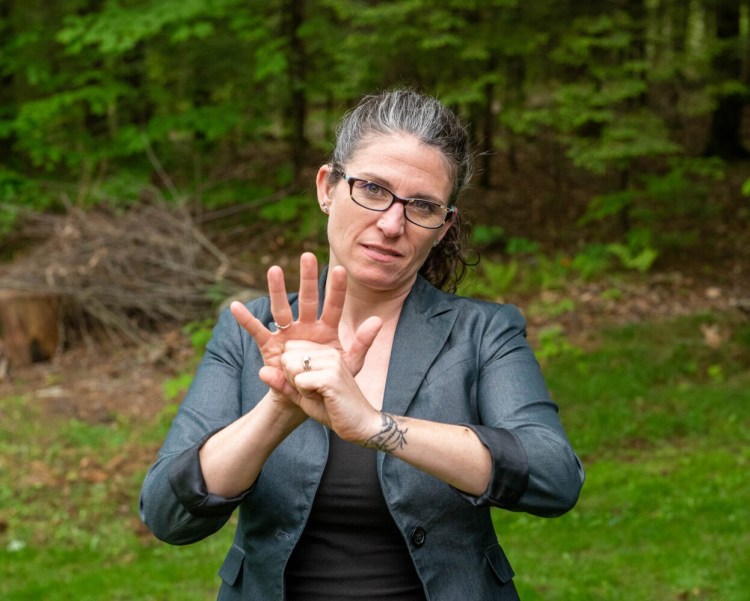With its cross-talk and interruptions, last week’s presidential debate was often difficult to follow.
Fortunately, deaf Americans could look to three interpreters for help — one for each candidate and the moderator, including Maine’s own Regan Thibodeau.
Thibodeau and her fellow interpreters brought the important information delivered in the debate — where it could be found — to hundreds of thousands of Americans whose interest in such important proceedings is often ignored. It shouldn’t be any longer.
The livestream of the debate with the three interpreters, hosted on DPAN.TV, the Sign Language Channel, has gained more than 330,000 views on Facebook. DPAN.TV also offered a similar service during a 2016 debate between Donald Trump and Hillary Clinton.
The channel is filling a void. Previously, deaf Americans had to rely on closed captioning, which can be difficult to execute in live events, particularly at something like a debate, where more than one person is often speaking at a time. Otherwise, they had to use transcripts, or depend on the opinions and interpretations of friends and pundits, to get some idea of what happened.
Live ASL interpretation is a vast improvement. Deaf interpreters such as Thibodeau use a hearing partner. In the case of last week’s debate, the partner interpreted Joe Biden’s words for Thibodeau, who then interpreted Biden’s words, adding expressions and body movements to convey the nuances of the language through ASL, deaf person to deaf person, in the way only someone who is deaf can capture.
In this way, the interpreters presented the debate so that Americans who primarily use ASL could experience it fully. That’s rare, but it doesn’t have to be. Activists are asking that live interpretation be available for every debate — and not through a separate channel like DPAN.TV but along with the regular broadcast.
In a suit by the National Association of the Deaf, a judge ruled in September that the White House must provide sign language interpreters at public COVID briefings and make the feeds available online and to all TV networks.
Viewers of Maine’s COVID briefings will remember Thibodeau and other interpreters standing alongside Dr. Nirav Shah of the Maine Center for Disease Control and Prevention, relaying important public health information while capturing Shah’s distinct tone.
Such information should be available to every American. The novelty of having ASL interpreters at the debate made clear just how often deaf Americans are forgotten in that conversation. Following the event, a young woman used the social media platform Tik Tok to show her frustration at not having ASL interpretation available through the normal debate venues.
“It’s not accessible, it’s not equal access, and it’s not right,” Erin Rosenfeld signs in the video. “It’s really frustrating because I’m finally old enough to vote, and I can’t even watch the debate.”
Presidential debates and events like them convey information important to the future of our country and democracy. No one should be left out.
Send questions/comments to the editors.



Comments are no longer available on this story